Straits of Magellan; Drafts and Fragments (1974)
Genre : Documentary
Runtime : 51M
Director : Hollis Frampton
Synopsis
A sampling of forty-nine fragments from Frampton's catalogue of 'actualities', the films from STRAITS OF MAGELLAN; DRAFTS AND FRAGMENTS, are all silent and unedited. Several invoke, directly, the work of the Lumieres, as in Frampton's reworking of DEMOLITION D'UN MUR (1895) in which a dilapidated farm silo is demolished in place of the Lumieres' wall. He makes reference to his own work and plays homage to the work of contemporaries. A complex range of formal issues are raised in other fragments. Finally, Frampton offers a number of analogues for the act of filming and cinematic seeing that includes a series of appropriated 'lenses' ( a stone portal, a wooden silo) and a set of 'screens' a pool of water, curtains, a dusty window).

A deconstruction of Dog Star Man that takes the four rolls and shows them first combined, then each combination of three rolls, then each combination of two rolls, then each individual roll. The plot is of a man who goes up a mountain with a dog to chop down a tree but has some unspecified transcendental experience while he is there.
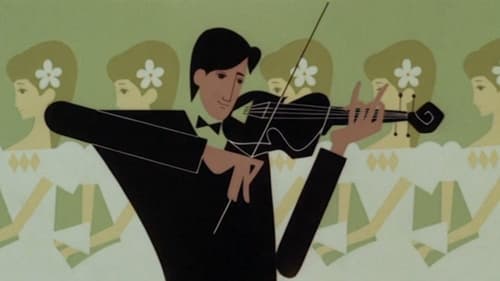
The sad and happy times of a young girl and her bear doll, a young mouse and his family, a sycamore tree, an old lamp post, a hoodlum moth and an alleyway full of posters coming to life.

The creation of Earth and Mankind. And how God changed his mind.

Experimental filmmaker Pip Chodorov traces the course of experimental film in America, taking the very personal point of view of someone who grew up as part of the experimental film community.

Big dreams, big blunts, big rims, and big guns. It's time to get gangsta gangsta. Ninja and Yo Landi are wheelchair-bound lovers and real gangstas. They live in the outskirts of civilization, they shoot guns for fun, smoke massive joints, and sleep in the woods. They don't have any bling to show for their gangsta cred, but the world deserves to know who they are. They're tramps, and their wheels are starting to fall off. Ninja become despondent over their vagabond existence, but Yo Landi won't let him give up. What ensues is straight up gangsta mayhem, the realist of the real, true gangsta shit.

In a deconstruction of classic Hollywood codes, using repetitive single frame images, the re-editing of teenager movies produces an intense Oedipal drama.

Pierre Clémenti's Soleil presents a psychedelic meditation on his life and his detention in an Italian Prison in 1972.

An experimental short film by John Whitney Sr. which combines animated shapes and colors; Computer graphics as dynamic, swirling art.

A tilted figure, consisting largely of right angles at the beginning, grows by accretion, with the addition of short straight lines and curves which sprout from the existing design. The figure vanishes and the process begins again with a new pattern, each cycle lasting one or two seconds. The complete figures are drawn in a vaguely Art Deco style and could be said to resemble any number of things, an ear, a harp, panpipes, a grand piano with trombones, and so on, only highly stylized. The tone is playful and hypnotic.
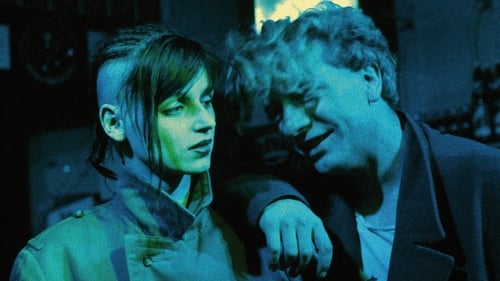
F.M. discovers that different sonic frequencies induce different patterns of behaviour in listeners, first in his own studio but later in the local "H-Burger" restaurant where the passive muzak appears to be wiping people's emotions.

Wavelength consists of almost no action, and what action does occur is largely elided. If the film could be said to have a conventional plot, this would presumably refer to the three “character” scenes. In the first scene two people enter a room, chat briefly, and listen to “Strawberry Fields Forever” on the radio. Later, a man (played by filmmaker Hollis Frampton) enters inexplicably and dies on the floor. And last, the female owner of the apartment is heard and seen on the phone, speaking, with strange calm, about the dead man in her apartment whom she has never seen before.
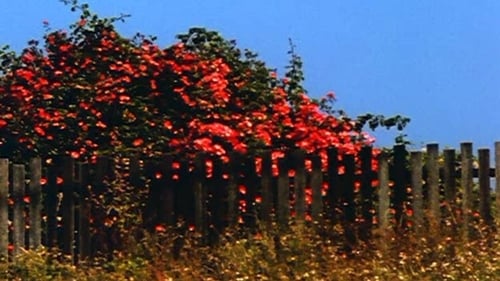
The film is made up of one single take. The camera pans to the left, focusing on a dilapidated fence in a rural field, as Ella Fitzgerald's "All My Life" plays on the soundtrack. At the end of the 3 minute film, the camera tilts up to the blue sky just as the song ends.
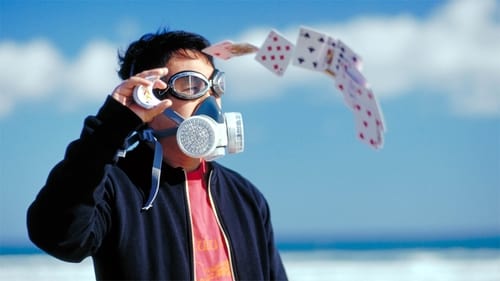
A.D. 2015: A virus has been spreading in many cities worldwide. It is a suicidal disease and the virus is infected by pictures. People, once infected, come down with the disease, which leads to death. They have no way of fighting against this infection filled with fear and despair. The media calls the disease the "Lemming Syndrome".

Vertical Features Remake is a film by Peter Greenaway. It portrays the work of a fictional Institute of Reclamation and Restoration as they attempt to assemble raw footage taken by ornithologist Tulse Luper into a short film, in accordance with his notes and structuralist film theory. The footage consists mostly of vertical landscape features, such as trees and posts, shot in the English landscape.

Experimental film fragment made with the Edison-Dickson-Heise experimental horizontal-feed kinetograph camera and viewer, using 3/4-inch wide film.

The Mexican Gelsen Gas side by side with Alexandro Jodorowsky (Fando y Lis, El Topo, The Holy Mountain and others) appeared as a theater director, artist and poet, had an idea about staging haiku's that would reflect the sexually-charged and politically streaming time. Early in the film finds a man buried a few rolls of film in the desert.

Part documentary, part personal essay, this experimental film combines archive imagery with the striking wintry landscapes of Alaska to tell the story of immigrant experience coming into the UK from 1960 onwards.

Maya Deren’s shortest, two-minute A Study in Choreography for Camera seems like an exercise piece to capture a dancer’s movement on celluloid, which later on developed into her masterpieces such as Ritual in Transfigured Time and Meditation on Violence.
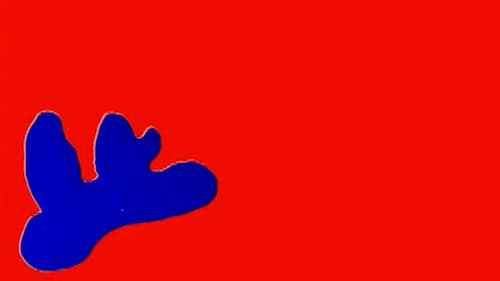
An experimental film in which both sound and visuals were created entirely by Norman McLaren drawing directly upon the film with ordinary pen and ink. The main title is in eight languages. Rereleased with multilingual titles in 1949.









